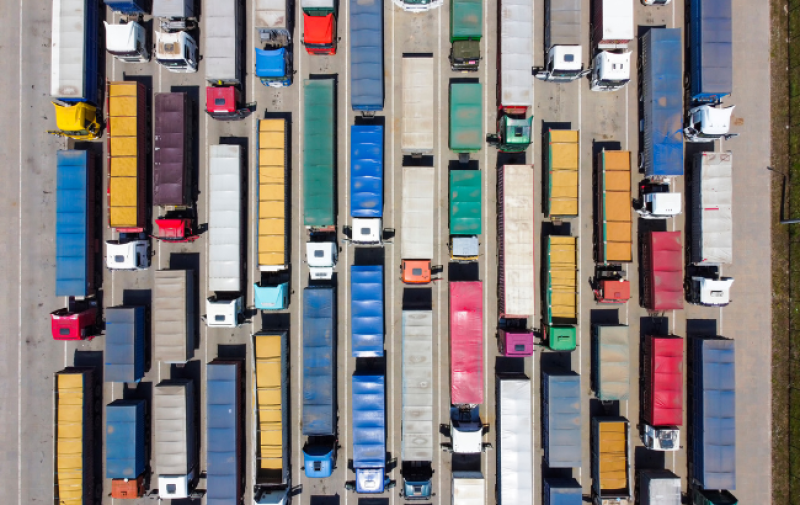Stay always informed
Interested in our articles? Get the latest information and analysis straight to your email. Sign up for our newsletter.

Corporations and their lobbyists have been using the Single Market rules to obstruct progressive social and environmental policies and regulations that might harm their profits. This needs to stop, Olivier Hoedeman writes in Euronews.
This year marks the 30th anniversary of the creation of the EU's Single Market. It touches on almost every aspect of European's daily lives, including important achievements such as borderless travel within the EU. However few are aware of how corporations and their lobbyists, with their obsession of 'completing' the Single Market, have been using its rules to obstruct progressive social and environmental policies and regulations that might harm their profits.
Their corporate complaints against legitimate policies (which involve pushing the European Commission to launch proceedings for 'infringements' of Single Market rules) are a type of lobbying that goes almost entirely under the radar. And yet they offer a powerful tool to industry players to silently target Member State legislation they dislike.
And now these lobbies are engaged in a successful push for these rules – which already tend to prioritise business interests above other public interest concerns – to go even further in their favour. Instead of protecting the democratic space of public authorities, the EU is going in the opposite direction.
Already, all too often rules labeled 'obstacles' to the Single Market are actually crucial steps for a transition to a sustainable and socially just future, such as measures to hit climate goals.
For example, as the climate crisis hits ever harder with droughts, floods, and record temperatures proliferating across Europe, the French government’s ban on short-distance domestic flights that could easily be done by train have provoked complaints by aviation lobby groups to the European Commission. In response these urgently needed measures have been restricted in scope. Now, due to complaints by airport lobbies, the Dutch Government's intention to shrink Schiphol airport flights by 25 per cent could also be undermined using Single Market rules.
Meanwhile, recent attempts in Germany and Poland to curb energy price rises as a result of dependence on ever-more-expensive fossil fuels also faced pushback using the Single Market as a justification.
Meanwhile recent attempts in Germany and Poland to curb energy price rises as a result of dependence on ever-more-expensive fossil fuels also faced pushback using the Single Market as a justification; as were plans for the financing of solar panels in a Danish municipality because they were seen as a potential 'distortion' to competition.
How does any of this square with the EU's own commitments to reduce CO2 emissions by 55 per cent by 2030?
Corporate Europe Observatory shows exactly how corporations and their lobby groups are using these enforcement mechanisms to block or undermine urgently needed progressive legislation at the national and municipal level in a new report '30 years of the Single Market: Time to remove the obstacles to social-ecological transformation'.
In almost all cases, the business sector has either been able to roll back, delay, or weaken progressive legislation.
Other cases of legitimate policies being blocked include the obstruction of social housing measures, public healthcare initiatives and consumer protection legislation regarding harmful substances. They also involve bans on single use plastics, sugar taxes, and restrictions on tourist accommodation, and gambling. In almost all cases, the business sector has either been able to roll back, delay, or weaken progressive legislation.
Now, under the slogan of ‘completing the Single Market’, new proposals by the European Commission and corporate lobby groups are pushing us even further in the wrong direction, by seeking to strengthen existing rules and enforcement mechanisms. Indeed in June 2022, these lobby groups demanded that the EU remove “all barriers to cross-border business operations and intra-EU investments, forming a fully-fledged Single Market for all economic activities” and highlighted deregulation of the services sector as a main priority.
The threat of rules being considered obstacles to the Single Market could have a freezing effect, stopping governments or municipalities from even attempting to introduce new social or ecological regulations.
Sure enough, the Commission's March 2023 communication on 'The Single Market at 30' announced a whole range of new initiatives for "enforcing existing Single Market rules and removing Member State-level barriers”, closely mirroring the demands of corporate lobby groups like the European Roundtable of Industrialists (ERT) and BusinessEurope. What these corporate players want is essentially a pre-emption of national level initiatives that don't fit their agenda.
This could mean that even where there is no active complaint, new national-level regulations will face tougher scrutiny at an even earlier stage of decision-making. And the threat of rules being considered obstacles to the Single Market could have a freezing effect, stopping governments or municipalities from even attempting to introduce new social or ecological regulations.
The European Trade Union Conference (ETUC) described the reforms as putting "the EU on course for a race to the bottom". Meanwhile Corporate Europe Observatory's recommendations, as well as a new civil society sign-on letter to the European Commission, call for a recalibration of how Single Market rules apply to things like public services, social justice, and climate protection measures.
Because if the COVID, cost of living, and climate crises have taught us anything, it is that the role of the state is crucial in tackling these catastrophes head on. In order for Europe to protect and expand its public services and social protections, and genuinely tackle the climate crisis, it will need to turn its back on neoliberalism and take steps to modernise Single Market governance so that the national and local measures needed for a just ecological transition are safeguarded.
We need to change the paradigm. Instead of removing industry-identified "obstacles" to the EU's Single Market we must focus on removing the real obstacles to a socially and ecologically just transition.